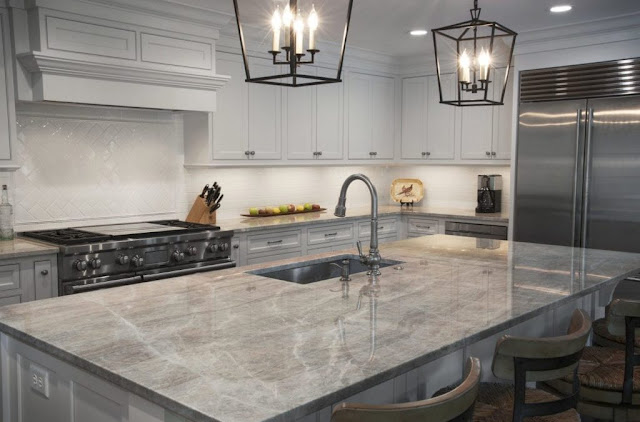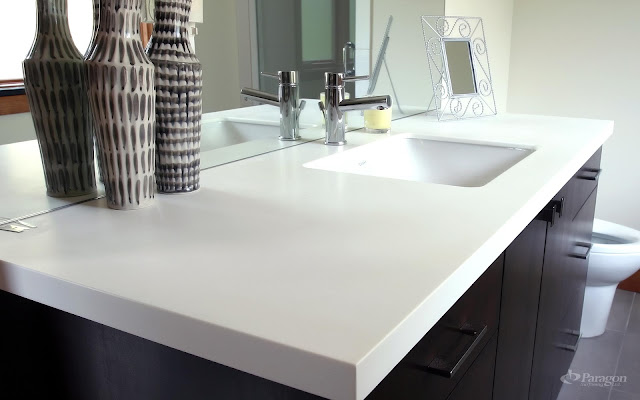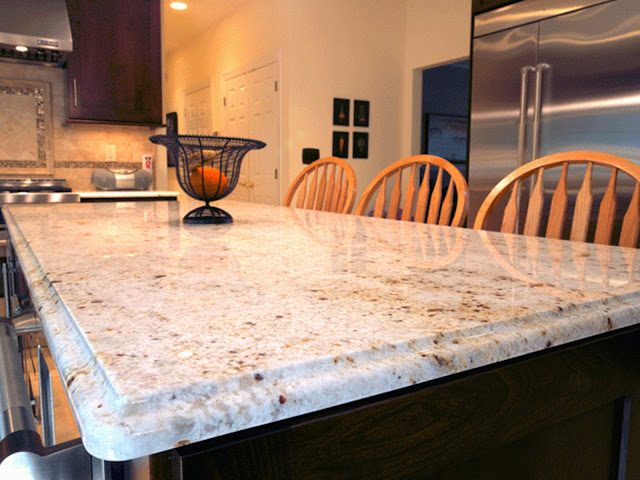Pros and Cons of Different Kitchen Countertops
As crucial as Kitchen Countertops are for a new kitchen, simply replacing them can entirely transform the look of an already existing kitchen. Replacements don't work because the kitchen is the busiest area of a house and the kitchen countertop covers a massive chunk of the surface area. It has to be rigid and sturdy enough to stand the test of time because, after all, chopping, spills, cuttings, and burns are regularly thrown in its path. Its durability also comes from characteristics such as scratch resistance, heat tolerance, etc. Apart from this, aesthetics are equally important. The Kitchen Countertops should look good laid out in your beautiful kitchen; its color, texture, and material should add to your home design's overall grace and poise.
There are many Kitchen Countertop materials available in the market these days, some more popular than the others. Their comparison is based on their pros and cons that are weighed concerning specific parameters. Also, kitchen countertop prices can vary with the material and its dimensions. In the list given below, we present the best kitchen countertop options and their advantages and disadvantages that you can choose from for your kitchen makeover.

● Granite Countertops
Granite
is known to be among the most challenging natural stones to exist on earth,
making it an ideal choice for Kitchen
Countertops. It can quickly provide any kitchen with a splash of luxury and
screams sophistication.
Pros -
Strong, resistant to heat, can endure large amounts of wear and tear, available
in a variety of natural hues such as black, pink, green, white, etc., with many
patterns, each slab is unique in appearance, elegant to look at, spike up the
value of the home, low maintenance
Cons -
Expensive, not uniform in appearance, difficult to replace with an exact piece
if a part gets damaged, need to be sealed during installation because of porous
nature to prevent staining, difficult to DIY (Do It Yourself), prone to
cracking if the installation is faulty, dulls knives when they are used to cut
directly on the surface, and chipped edges require professional intervention

● Quartz Countertops
Another name for quartz is
engineered stone; these countertops are made from crushed quartz crystals bound
by polymer resin. Some Quartz Countertops can
also mimic the look of even marble.
Pros -
Possess looks of natural stone, stain and scratch resistance, polish stays on
for a long time, available in a plethora of colors, non-porous and don't
require to be sealed, low maintenance, DIY installation is possible, uniform
slabs, custom fabrication is possible, resistant to acid and heat damage
Cons -
Discolours over time with direct sunlight exposure, expensive, bulky, edges
prone to chipping and require professional help, not as heat resistant as
granite countertops

● Concrete Countertops
When coloured and polished,
concrete countertops can potentially look very graceful, especially for a
rustic aesthetic. Their heaviness doesn't allow them to be premade and needs to
be cast on-site around installation time.
Pros-Hard,
scratch, and heat resistant, customizable according to size, shape, color,
finish texture; uniform, offbeat appearance
Cons-Heavy, prone to
cracking if not appropriately sealed, porous, has to be poured on the site; DIY
not possible, expensive, 'industrial' appearance might deter some.

● Solid Surface Countertops
These are man-made
countertops manufactured by pressing acrylic particles and resins into solid
sheets. They have been introduced into the decor scene for about 50 years and
are considered mid-tier in their pricing.
Pros-Almost
invisible seams, smooth look, stain-resistant, malleable material allows
bending into various shapes, available in a myriad of colors and textures, can
imitate marble and concrete, chips and surface damages be fixed by sanding.
Cons-Susceptible
to heat damage, easily scratched and dented, expensive, DIY not possible.

● Wood/Butcher Block Countertops
Wood
is known to exude a certain amount of warmth to any room. For this particular
purpose, oak and hardwood are the commonly used woods. A touch of high-quality
varnish can improve its stain and scratch resistance by a mile.
Pros -
Easy to maintain, long-lasting and durable, sanding and resealing can be done
quickly, provides a country type decor, easy to install.
Cons -
Expensive, easily scratched, prone to water damage, bacteria growth can be an
issue, can get cracked, oiling, and sealed regularly.



Comments
Post a Comment